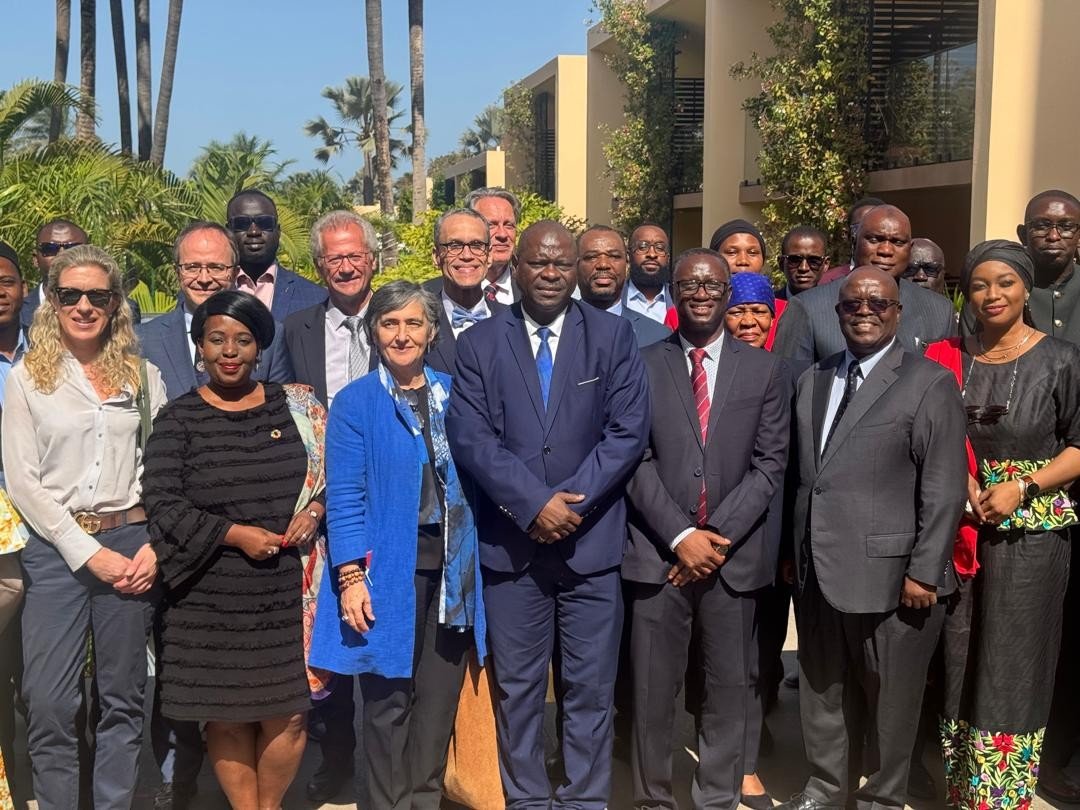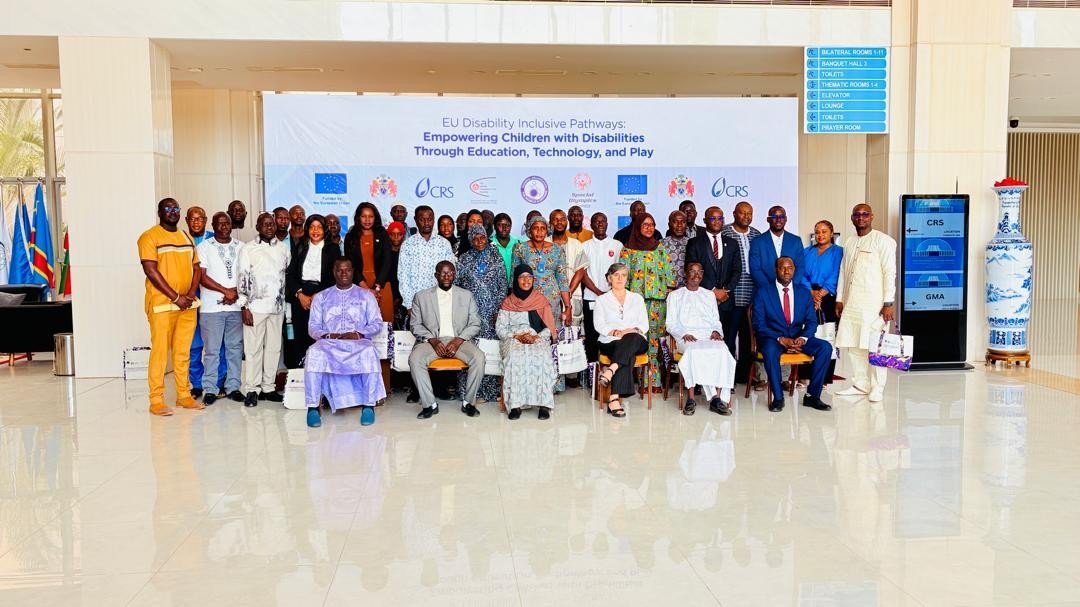Food import and export company Rahma Gambia Limited, owned by international Gambian entrepreneur and scholar, Monday laid the foundation stone for the construction of a state-of-the-art multi-purpose food processing factory in Foni Kanfenda.
Entrepreneur Alassan Gent Ceesay, based in the United Kingdom, executed the venture in collaboration with business partners and government stakeholders.
The historic ceremony was widely graced, and among the thousands of attendees from The Gambia, the sub-region and across the world were top government functionaries, such as Babucarr Bouy (on behalf of President Barrow), Minister of Public Service, National Assembly members of Foni Kansala and Kiang West (Almameh Gibba and Lamin Ceesay respectively), diplomats and international business partners from the UK and other countries, and religious leaders.
Equally, the community members embraced Alassan’s pioneering business move staged in their community, attending in numbers and showing their appreciation.
According to information by the company, initial plan was to construct a mango juice processing plant. However, the idea shifted with a grander aspiration for a multi-purpose plant that would also produce essential food items – millet flour, condensed milk and others – for The Gambia and beyond.
“As Gambians, we have always been a proud and hardworking people. Yet today we face a stark reality: over 70 percent of the food we consume is imported. Every year, we send tens of millions of dollars abroad to buy rice, cooking oil, fruit juices, tomato paste and other basic food products. These are foods that we have the land, the people and the resources to produce ourselves,” Alassan Ceesay, founder and CEO of Rahma company, who is an ardent believer of social innovation and creativity in creating jobs and ensuring sustainable development, said.
“This,” he added, “is not just an economic issue. It is a matter of national survival. How can we ever be a strong and independent nation if we rely on others to feed us? When we import food, we do not just import rice and other essential goods; we import poverty, we import unemployment, we import economic stagnation, because the money leaves our economy instead of circulating within it.”
Mr Ceesay, who studied Masters of Entrepreneurship and Social Innovation at the University of Cambridge, raised the persistent struggles Gambian farmers endure, the underdevelopment of local industries and the menace of lack of employment opportunities for young people, underscoring that the factory is a step towards changing the narrative in the Gambian food processing and the general industrial sector.
On behalf of President Adama Barrow and his administration, Minister Babucarr Bouy, in his discourse before the massive gathering, reassured of government’s commitment to supporting industrial investments that seeks to enhance local productivity and create jobs.






